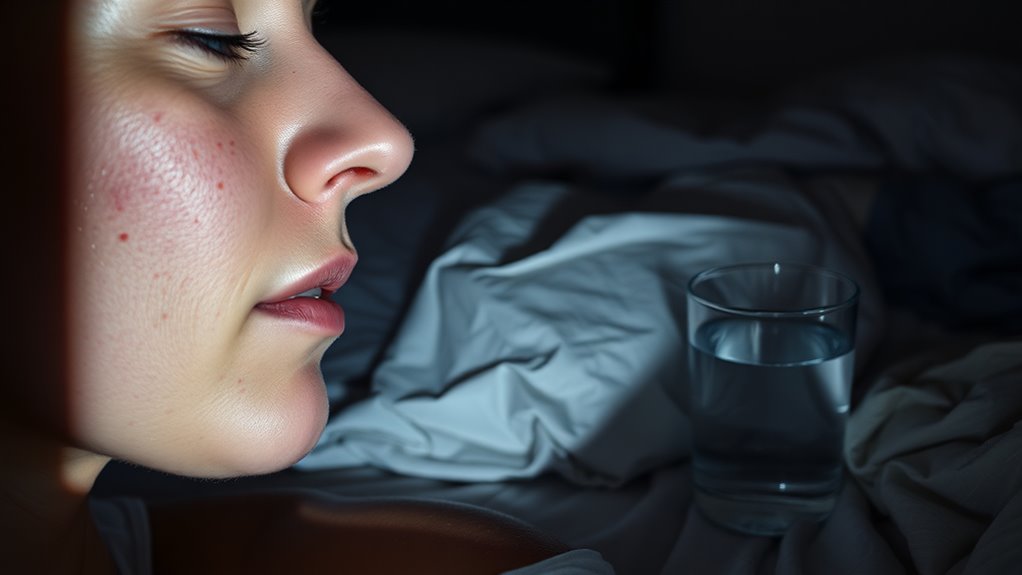The Link Between My Sleep Habits and Breakouts Was Shocking
Your sleep habits play a crucial role in your skin health. When you sleep less than seven hours, your skin struggles with repair, leading to increased breakouts. Lack of sleep raises cortisol levels, which heightens inflammation and oil production, contributing to clogged pores. Even if you’re getting enough hours, poor sleep quality can still trigger skin issues. Understanding these connections is vital for achieving healthier skin, and there are effective strategies to improve your sleep routine for better results.
The Science Behind Sleep and Skin Health
Sleep is fundamental to overall health, and its impact on skin vitality is particularly significant.
Research reveals a robust sleep skin connection; adequate rest promotes cellular repair and regeneration.
During sleep, blood flow increases, delivering essential nutrients to your skin. This process not only enhances complexion but also strengthens the skin barrier, making you better equipped to combat environmental stressors.
Prioritize restorative sleep for optimal skin health.
How Lack of Sleep Triggers Breakouts
When you consistently skimp on sleep, the consequences extend beyond mere fatigue; they can manifest on your skin in the form of breakouts.
Lack of sleep can:
- Disrupt your skin’s repair processes
- Increase oil production, leading to clogged pores
- Weaken your immune system, making you more susceptible to acne-causing bacteria
Additionally, chronic stress from lack of sleep can lead to increased inflammation in the skin, compounding your breakout issues.
Addressing your sleep habits might be the key to clearer skin.
The Role of Stress Hormones in Insomnia
While many people overlook the link between stress hormones and insomnia, understanding this connection is crucial for managing your sleep quality.
Elevated cortisol levels, often triggered by stress, can disrupt your sleep cycle, making it harder to fall and stay asleep.
This hormonal imbalance not only affects your rest but can also lead to bodily inflammation, exacerbating skin issues like breakouts.
Sleep Quality vs. Sleep Quantity
Understanding the difference between sleep quality and sleep quantity is essential for achieving optimal rest.
While both are important, their impacts vary:
-
Sleep Quality: Refers to the restorative effects and deep sleep stages you reach.
-
Sleep Quantity: Concerns the total hours you sleep each night.
-
Skin Health: Poor quality can lead to breakouts, regardless of quantity.
Balancing both is crucial for clear skin.
Tips for Enhancing Sleep for Better Skin
To achieve better skin, it’s crucial to implement strategies that enhance both the quality and quantity of your sleep.
Establish a consistent sleep schedule, create a calming bedtime routine, and limit screen time before bed.
Ensure your sleep environment is cool, dark, and quiet, and consider incorporating relaxation techniques like meditation.
These adjustments can significantly improve your skin’s health and appearance over time.
Personal Experience: My Journey to Healthier Skin
Although the journey to healthier skin can seem overwhelming, my personal experience revealed the profound impact that dedicated changes in sleep habits can have on skin health.
By prioritizing my sleep, I noticed significant improvements such as:
- Fewer breakouts due to reduced stress levels
- A more radiant complexion associated with proper rest
- Enhanced skin repair overnight
Moreover, I learned that consistently skipping my skincare routine can lead to increased oil production, which could counteract my efforts for clearer skin.
These changes transformed my skincare routine and overall well-being.

